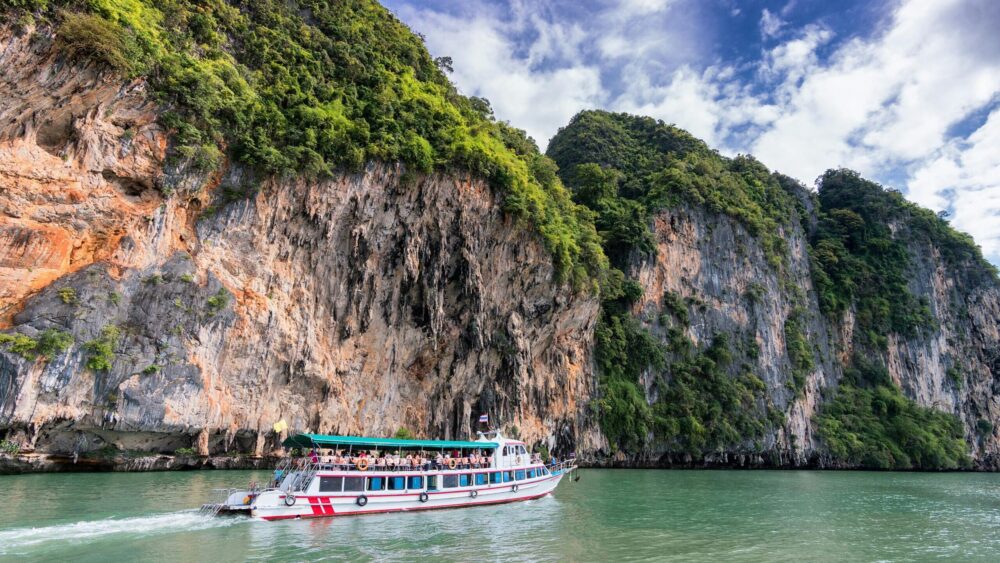
Thailand is a dynamic crossroads of history, culture, and nature. As one of Southeast Asia’s most visited destinations, it offers unparalleled variety—from the energetic streets of Bangkok and the tranquil rice paddies of Chiang Mai to the idyllic coastlines of Phuket and Krabi. Each region tells its own story, blending modern lifestyles with time-honored traditions.
Known for its hospitality, Thailand thrives on its ability to welcome travelers with open arms, offering experiences that range from spiritual retreats to culinary adventures. With efficient travel connections and a wide array of accommodations, Thailand caters to every traveler’s style and budget.
Understanding Entry Requirements for Thailand
Visitors to Thailand must meet specific entry requirements to ensure a seamless entry experience. A valid passport with at least six months of remaining validity is essential for all travelers. Depending on your nationality, you may also need to secure a visa before arrival or be eligible for a visa-free entry or visa-on-arrival program.
Proof of a confirmed return or onward flight ticket is typically required for most entry types. Travelers may also need to show evidence of sufficient financial resources and pre-booked accommodation.
Types of Travel Authorizations for Thailand
Thailand eVisa
The Thailand eVisa is an efficient option for travelers visiting the country for short-term purposes, such as tourism or business. This electronic visa simplifies the application process and provides a convenient travel authorization solution.
- Easy Online Application: Complete your eVisa application online with personal details and required documents.
- Quick Processing: Approved eVisas are linked to your passport electronically, enabling faster verification upon arrival.
- Multiple Purposes: The eVisa supports various travel needs, including tourism and business trips.
- Flexible Validity: Travelers can enjoy stays of up to 30 days, with single-entry options available.
Traditional Thailand Visa
For travelers ineligible for the eVisa or planning extended stays, employment, or specialized activities, a traditional visa is required. Thailand provides several visa categories to accommodate different travel purposes:
- Tourist Visa: Designed for leisure travelers exploring Thailand’s cultural, historical, and natural attractions.
- Business Visa: Ideal for individuals attending meetings, conferences, or pursuing investment opportunities.
- Education Visa: For students enrolling in academic programs or short-term training courses.
- Work Visa: Required for foreigners employed in Thailand.
- Retirement Visa: Available to travelers aged 50 and above planning long-term stays.
- Visa-on-Arrival (VoA): Offered to nationals of specific countries for short-term visits.
Who Needs a Thailand Visa vs. eVisa or Visa-on-Arrival?
Your need for a visa depends on your nationality, purpose of visit, and length of stay. Many travelers from visa-exempt countries can enjoy short-term stays without obtaining a visa.
Eligible travelers from specific countries can apply for a visa-on-arrival upon reaching Thailand, while others may benefit from the convenience of the eVisa platform for short-term visits like tourism or business.
For long-term stays, employment, or study, travelers must secure the appropriate traditional visa through a Thai embassy or consulate. Ensuring you apply for the correct authorization minimizes the risk of travel delays or complications.
Importance of Choosing the Right Authorization
Selecting the right travel authorization is key to a stress-free experience in Thailand. Whether you qualify for visa-free entry, an eVisa, or require a traditional visa, meeting Thailand’s entry requirements ensures a smooth arrival.
Proper preparation and documentation allow you to focus on exploring Thailand’s awe-inspiring temples, serene islands, and dynamic cities to create memories that will last a lifetime.

